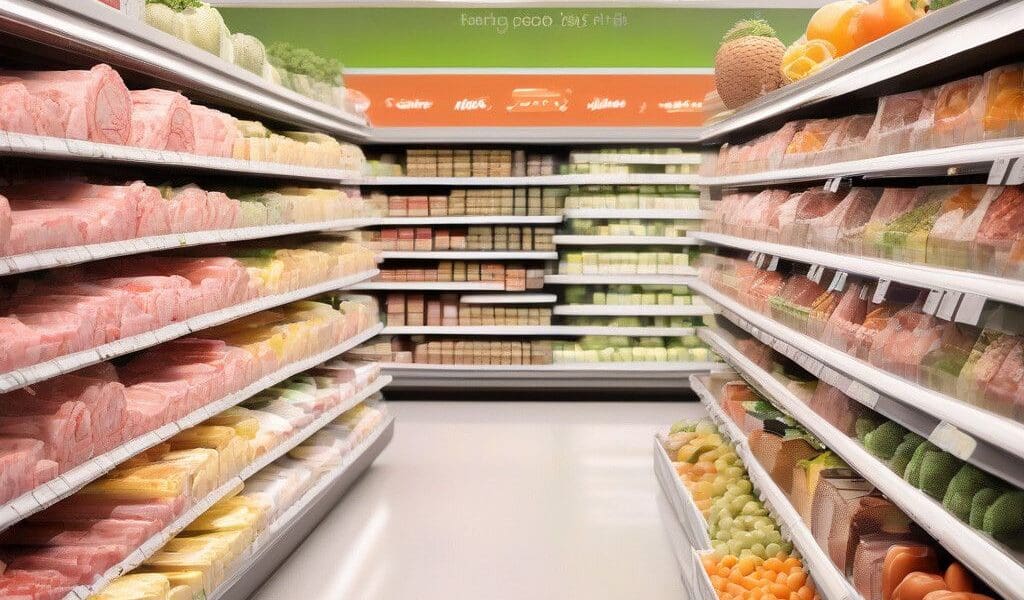With recent incidents like the recall of Boar’s Head deli products, food safety has become a pressing topic for consumers and food industry professionals alike. This urgency is not just due to occasional recalls, but also stems from the ongoing risk of foodborne illnesses. Enhanced by regulations such as the FDA’s upcoming Food Traceability Final Rule—set to come into force in January 2026—grocers are now facing increased accountability regarding the safety of their products. The rule demands meticulous documentation of key food items, underscoring the importance of a reliable supply chain. So, how can grocery stores effectively ensure food safety in their operations?
1. Comprehensive Training for Employees
One of the most significant factors in maintaining food safety is employee training. For businesses like 3 Guys From Brooklyn, operational excellence begins with extensive knowledge about food safety practices. Phil Penta, the managing partner, emphasizes his commitment to continuous education in Hazard Analysis and Critical Control Points (HACCP). His employees undergo training to ensure consistently high hygiene standards and proper handling of perishable goods. This commitment is critical for businesses, as the moment a lapse in protocol occurs, the risk of contamination escalates.
2. Implementing Stringent Safeguards
The approach to food safety must be robust and multi-faceted. At Draeger’s Market in the San Francisco Bay Area, co-owner Richard Draeger notes that their food safety procedures extend beyond simple cleanliness; they have a dedicated commissary for deli and bakery products. This unique structure allows them to enforce stringent safety protocols during production, minimizing risks. Draeger makes it clear that vendor selection also plays a crucial role; choosing suppliers who prioritize quality will mitigate supply chain risks and fortify the overall safety ethos of the grocery store.
3. Technology in Food Safety Monitoring
The use of technology can enhance food safety assurance. The integration of advanced record-keeping systems and traceability platforms helps grocers manage compliance more effectively. Technology can simplify the documentation of food movements, which is essential under FDA regulations. Draeger’s Market is exploring such technological tools, which can include digital systems that log procedural compliance through various means, including photographic evidence. By leveraging technology, grocers can not only stay compliant but also improve operational efficiency.
4. Consistent Hygiene Protocols
Maintaining cleanliness is an ongoing task that requires full-time attention. Many retailers employ dedicated cleaning crews, both in-house and through third-party services, to ensure environments are sanitized regularly. Good Food Holdings highlights this need by requiring daily self-audits from each store and employing a dedicated food safety manager to supervise the execution of cleaning protocols. These practices reinforce a culture of accountability among staff and ensure that food safety is a shared responsibility.
5. Ongoing Assessment and Feedback
Creating a sustainable food safety culture involves implementing continuous assessment methods. Strategies at Good Food Holdings include monthly updates on food safety topics shared across stores and regular visits from food safety managers for training refreshers. This approach not only focuses on compliance but enhances overall awareness of food safety protocols among employees.
6. Integrate Food Safety into Company Culture
As highlighted by Hilary Thesmar from the FMI Foundation, integrating food safety into the broader business culture is non-negotiable. Food safety professionals should assist in various company functions, from procuring new products to assessing equipment for potential hazards. This can include rationalizing new ingredients that could pose allergenic risks. By positioning food safety governance as a core element of the operational ethos, companies can ensure that every employee values these protocols and actively contributes to maintaining them.
Conclusion
As food safety becomes more scrutinized in the retail sector, grocery stores must be proactive. Through comprehensive training, stringent controls, the incorporation of technology, and a culture that prizes food safety, businesses can significantly reduce risks associated with foodborne illnesses and enhance public trust. Meanwhile, following evolving regulations like the FDA’s Food Traceability Final Rule will be essential in safeguarding consumer health while navigating the complex landscape of modern retail.











